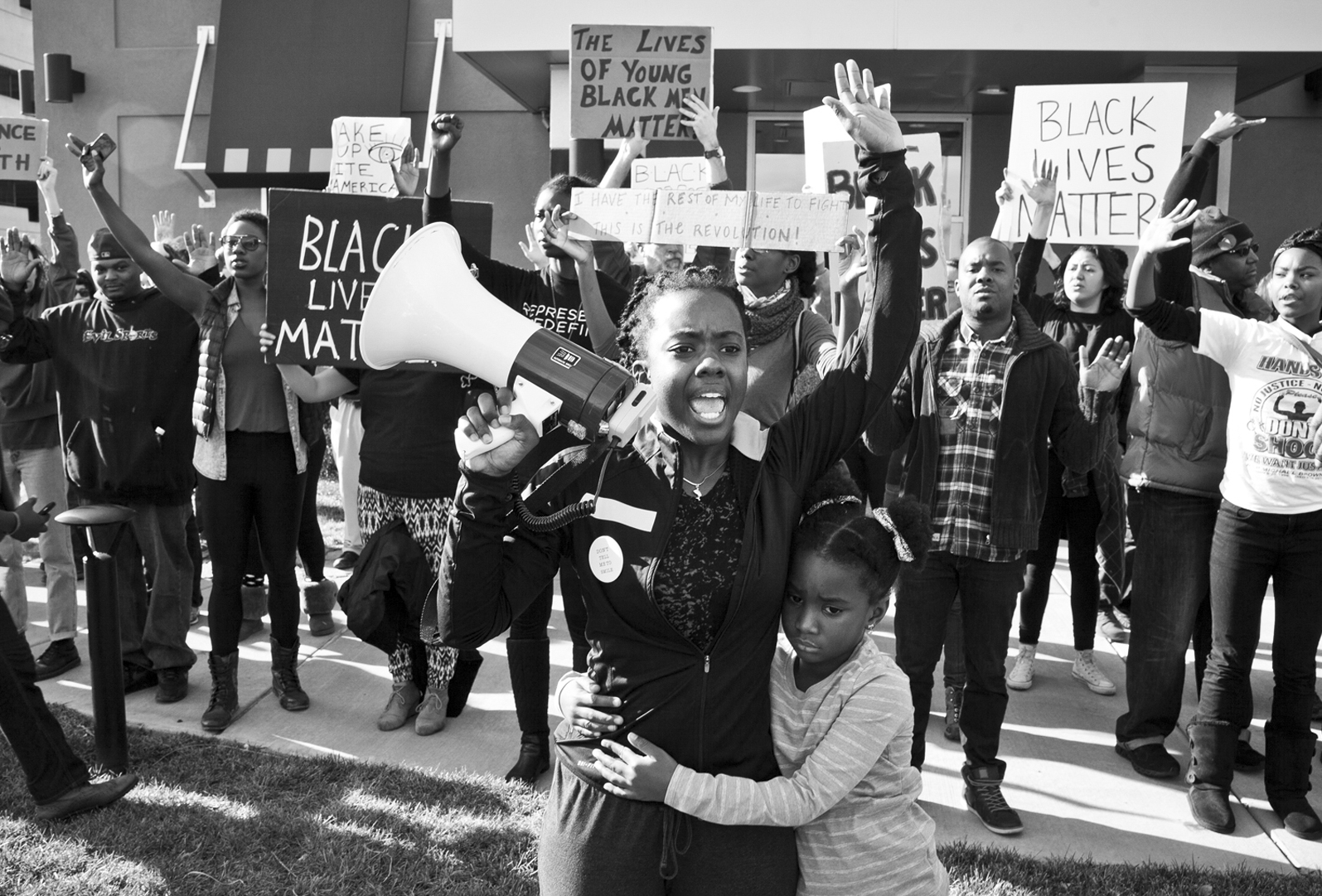
c/o pbs.org
The Powell Family Cinema held a screening of the 2017 film “Whose Streets?” directed by Sabaah Folayan on Monday night.
The movie, a documentary, includes raw footage and interviews from the 2014 protests and police-provoked riots in Ferguson, Mo. Sponsored by the African American Studies Department, the College of Film and the Moving Image, the Resource Center, the Center for the Arts, and the Creative Campus Initiative, the movie was followed by a talkback with Folayan herself and Director and Community Organizer for the Middletown Racial Justice Coalition Precious Price.
Folayan documented a powerful look into the protests and ensuing state of emergency in Ferguson, Mo., after the fatal Aug. 9, 2014, shooting of Michael Brown, an 18-year-old unarmed black man, by Ferguson police officer Darren Wilson. Folayan, a Los Angeles native who was originally on track at Columbia University for pre-med, worked with a small production team to create this impressive film. First introduced at the 2017 Sundance Film Festival, the movie has been screened around the world and elicited a wide range of responses and critical praise.
After Michael Brown was shot six times and left in the streets for four hours, with no arrest for Darren Wilson, the citizens of the marginalized community of Ferguson took to the streets for what were originally peaceful protests. Memorials were erected and vigils were held for Brown and his family. The gatherings were met with heavy police presence, and riots ensued. Protesters were tear gassed and shot with rubber bullets, and dozens were arrested. SWAT teams and Marines were sent in as crowd control. By Aug. 16, Governor Nixon of Missouri declared a state of emergency, sending in the National Guard, which implemented nightly curfews and military-like tactics.
Folayan focused heavily on interviews with people at the demonstrations, giving the audience direct insight into the intensity of the unrest in Ferguson. Among those interviewed were activists Brittany Ferrell and Alexis Templeton, who led one of the most memorable protests in September 2014 in an attempt to shut down a Missouri state highway, leading to both of their arrests. Folayan continued documenting throughout a tumultuous series of protests in October and November, in which another state of emergency was declared. On Nov. 24, the grand jury decided not to indict Wilson in the shooting death of Brown, which led to further protests and riots.
Following the film, Folayan answered questions that Price posed on the motives of the film.
“When I saw what was happening in Ferguson…I felt like this was a public health crisis,” Folayan said. “I felt like the people involved with this, whether they were the ones wielding the weapons or the citizens, would experience a form of PTSD that would have lasting effects on the community, and that is what I initially went hoping to investigate…but it wasn’t the type of environment to do that form of clinical questioning.”
Working as a director with her Columbia classmate Lucas Alvarado Farrar, who is a cinematographer, they joined the demonstrators to capture the amplified emotions and terror in Ferguson. Folayan emphasized the intensity of the situation.
“We didn’t [keep ourselves together],” she said. “We did fall apart, and we were not okay, and we were not safe, and we were not healthy. But when you see somebody [Ferrell] who has a daughter and an active medical career participating…. It just puts it in perspective, and it puts something on the line…. It was absolutely traumatic.”
The Argus asked Folayan about how to keep the lessons and messages from Ferguson alive now that four years have elapsed. Folayan offered hope in response.
“One of the scenes that didn’t make it into the movie is that they have this Books and Breakfast program, which was adopted from the Black Panthers, where they just have breakfast once a month, people donate books, and kids come and take the books and they read,” she said. “That sort of fill the gaps that aren’t available for the communities…. So I think it’s about the energy of this, you know the quote at the end [of the movie] that we have a responsibility and that our government works for us…and you just take the energy and apply that to whenever and wherever you may be.”
Flayan also spoke of urgency in resistance, revolutions of thought, and optimism.
“I’m hoping we’re not expecting this revolution to be something that happens in 10 years and that we fixed it, but that we’re understanding the shift in mindset that we have to be constantly engaged in,” she said. “It’s not a burden; it’s very fulfilling. There’s a reason that people come out night after night even though it’s so brutal and it’s so upsetting. I hope that’s the revolution, a sort of revolution of thought.… It’s a marathon, and as urgent as it is, it’s also sort of never-ending work, so it’s figuring out ways to be present and show up but also knowing when to step back and how to protect ourselves…. It’s a discipline to stay optimistic it’s a discipline to stay positive and keep yourself in a state of being that you can offer something to others and be a refuge to others…. And if you have the privilege to avoid being so depleted, you should avoid that so you can be there for somebody that doesn’t have that privilege.”
Price closed the discussion with a plug that takes the discussion of racial injustice local.
“Here in Middletown we have a coalition for racial justice that was started in 2016,” Price said. “The main focus of the coalition is a focus on education and equity work. Our work started with the organizing of the new superintendent…and offering education to teachers…to parents…. We host monthly community meetings in which we have a conversation any people want to have around race.”
You can join the Middletown Racial Justice Coalition Facebook page to stay connected.
Meredith Olin can be reached at molin@wesleyan.edu.